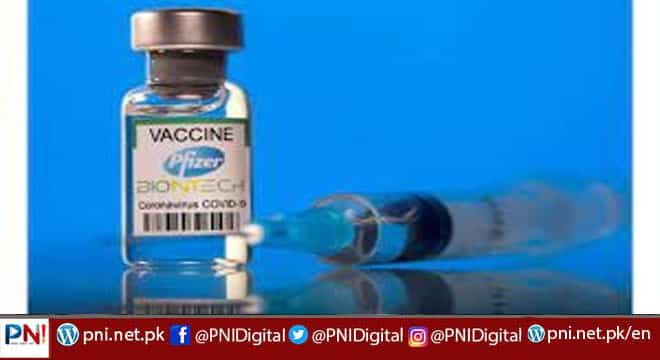Washington, Sept 17 (AFP/APP):Leading US medical experts were meeting Friday to decide whether to recommend booster doses of Pfizer’s Covid-19 vaccine for the general population, a move which some researchers have said is not required at this time.
President Joe Biden’s administration announced in August a plan to roll out third shots to everyone, not just the immune compromised already able to receive them, starting from September 20.
But a number of experts have since expressed reservations about whether they are required, amid concerns over global inequity, and possible increased risk of rare side effects, including myocarditis (heart inflammation) seen especially in younger males.
The skepticism extends to scientists at the Food and Drug Administration (FDA), who struck a cautious tone in documents released ahead of Friday’s meeting where an independent panel has been convened.
“Overall, data indicate that currently US-licensed or authorized COVID-19 vaccines still afford protection against severe Covid-19 disease and death in the United States,” the FDA said in a briefing document.
Peter Marks, a senior FDA scientist who opened the meeting, asked participants “to focus our deliberations on the science…and not on operational issues related to a booster campaign or on issues related to global vaccine equity.”
The outside experts — including vaccinologists, infectious disease researchers, and epidemiologists — will be tasked with voting on whether there is sufficient proof of a booster’s safety and efficacy.
While their recommendation isn’t binding, it is normally acted upon.
If the FDA panel votes yes, it will fall to another committee convened by the Centers for Disease Control and Prevention (CDC) on September 22-23 to decide who should receive the booster first and when they should get it.
The CDC has previously indicated it sees the elderly, nursing home residents and health care workers as likely first in line.
Any expressions of hesitancy or calls for limits on who should get boosters may be taken as a rebuke of the Biden administration, which announced the measure prior to consulting its science agencies.
Even before the meeting, two senior FDA officials co-signed a letter in The Lancet this week that said “booster doses for the general population are not appropriate at this stage in the pandemic.”
– Continued efficacy against hospitalization –
At the meeting, Pfizer officials cited studies that demonstrated waning immunity against infection several months out from the first two doses.
“The demonstrated safety and effectiveness of a third dose support adding a booster dose to the vaccination schedule,” said Donna Boyce, Pfizer’s senior vice president of global regulatory affairs.
But a growing body of US research — including a dataset presented by Pfizer itself at Friday’s meeting — has shown two doses continue to confer high protection against severe outcomes.
Pfizer also presented data showing boosters increased antibody levels against the Delta variant.
Sharon Alroy Preis, an official with Israel’s health ministry, presented data from her country which ran a booster campaign after experiencing a Delta wave, and has approved boosters for everyone aged 12 and up.
“Administration of booster dose helped Israel dampen severe cases in the fourth wave,” she said.
For its part, the FDA said in its briefing document that not all studies are reliable and it believes US-based research “may most accurately represent vaccine effectiveness in the US population.”
A vote is expected later in the afternoon.
Follow the PNI Facebook page for the latest news and updates.









